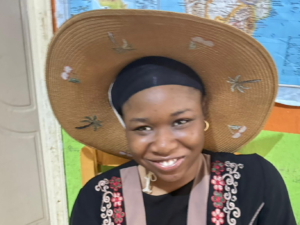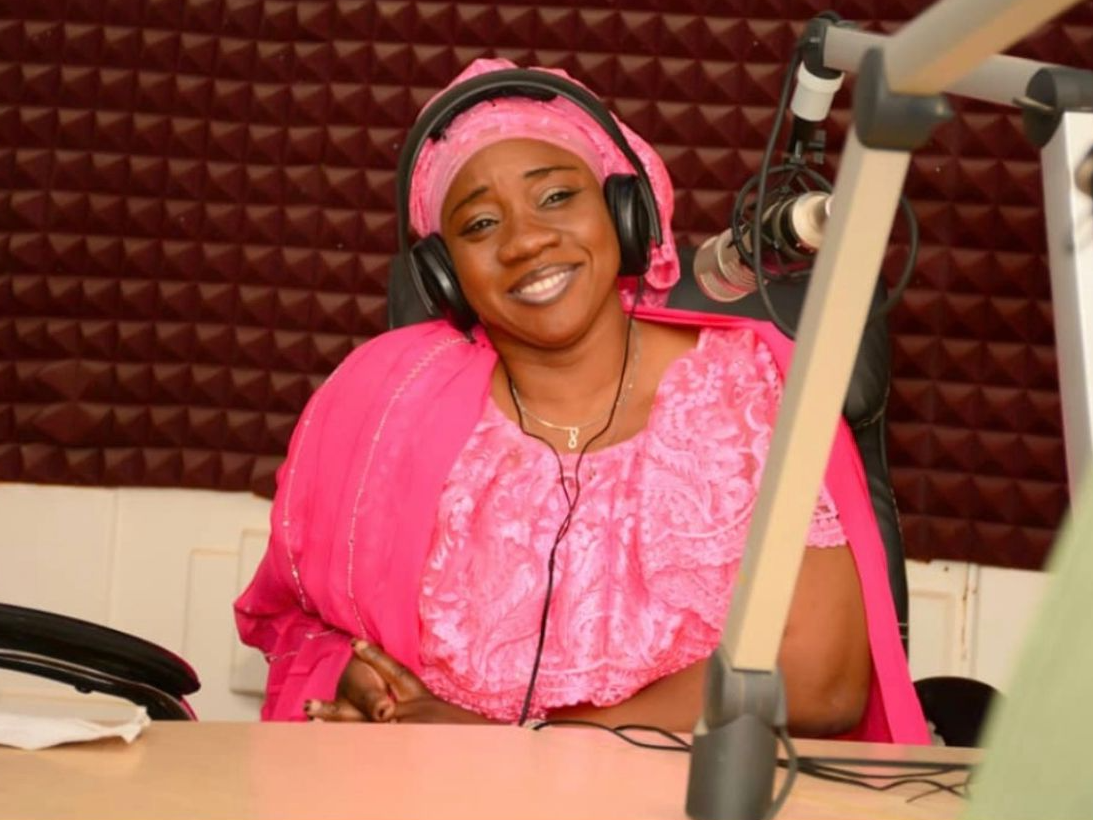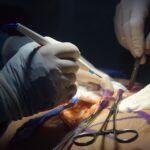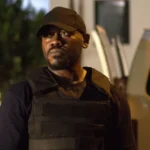It was a little past noon one sleepy Friday in February 2011 when Aisha Funsho woke up with a start. Her 12-year-old son burst into her bedroom in her home in Kano, breathless. “Mommy, mommy, there’s a fire in our room!”
Fire? From where? Funsho wondered as she dashed upstairs to her children’s room. A fit of panic seized her when she saw the raging hot flames licking at the walls.
In the ensuing chaos, she ushered everyone downstairs, including her sister, trailing behind and urging them to run. Only after they had escaped outside did the thought dawn on her. Her breath came fast.
“Where’s Khadija?!” she shouted. Neighbours searched frantically, but Khadija, her youngest daughter, was stuck upstairs, in the burning room.
Funsho raced back towards the stairs, but the plumes of smoke in the passageway blinded her vision and choked the air.
“Please, don’t let me enter this fire. Just keep this girl safe for me,” Funsho recalls praying to God aloud amidst tears.
As if on cue, a team of firefighters arrived quickly to rescue Funsho’s daughter from the blaze. But the smoke had tampered with her brain function, leaving the 4-year-old with brain trauma.
Funsho would later channel her grief into a mission to serve the growing needs of the disabled community and give hope to others.
In the months after the incident, Funsho shunted across many different hospitals. A doctors’ strike at the Aminu Kano Teaching Hospital prompted the family to switch to a private facility in Abuja.
Here, doctors found a toxic build-up of acid in her daughter’s blood, a stunning discovery previous doctors had missed.
The doctors at the private clinic neutralised the acid, and her daughter’s senses slowly returned. Still she struggled to speak and walk as before.
Doctors thought her survival was a miracle.
The years after the fire incident took a heavy toll on her—and her event-management business. She couldn’t herself plan events while living with her daughter in hospital.
Some of her clients were compassionate, postponing their parties by months to allow Funsho recover fully. But as her daughter’s condition persisted, she was forced to demur.
The hospital routine was slow and tedious.
“We would go to the hospital at 6 a.m. just to queue,” she remembers. “By 10, maybe a doctor will show up. And after 30 minutes, they were done. I got tired.”
One day, as she sat with frustration at the hospital, Funsho thought to herself: “What do they even have here that I cannot put in place myself?”
That was the seed of KF Place. If she could create a space where her daughter received therapy daily, while also learning like other children, she could make it open to others too.
That thought became the inspiration for KF Place, drawn from the initial letters of her daughter. When it kicked off in early 2017, the outfit hosted a few children, including her daughter Khadija.
While her husband thought it was an expensive affair, Funsho stuck to her guns. She committed her time to research on physiotherapy, speech therapy, occupational therapy, music therapy, including equine therapy with horses for brain stimulation.
When people asked her if she studied any of these, “No,” she replied. “I just knew I had to do something.”
Word soon spread about it in time, drawing children with autism, ADHD, Down Syndrome, cerebral palsy, visual and hearing impairments, and rare brain injuries like Khadija’s.
“If you ask me how we are running, I don’t know,” she says. “It is God Himself.”
She explains that donations from parents, friends and her alumni have helped to sustain KF Place. The school’s solar electricity is a gift from one of Funsho’s friends. Sometimes she receives contributions from strangers online who are moved by her story.
“Sometimes strangers walk into my office just to pray for me. The parents keep praying, keep thanking me, keep telling me, ‘God bless you.’ And then the children, ah, the children! You can’t help but love them. They are innocent, beautiful, full of light.”
Funsho has come to celebrate every milestone—however little—”because tomorrow is never promised, not for me, not for them. So we dance, we laugh, and we shout in this school,” she says.
Supported by 22 staff members, comprising teachers, nannies and visiting specialists, KF Place currently caters to 47 children. Each child’s programme is designed according to “curriculum, rehabilitation, and reintegration,” says Funsho.
In addition, training covers coding and other computer skills to get them independent. “If these children can master it, there is nothing they cannot do.”
Some stay long-term; others eventually move into mainstream schools.
An estimated 95.5% of children with disabilities are out of school. Along with limited funding and trained personnel, many schools are not accessible for children with special needs.
School fees at KF Place cost 80,000 (less than $60) per term, and it’s barely enough to cover the costs of maintenance.
More troubling is the current location of KF Place, where she’s rented in the last five years. “I don’t even know if we will be here next year,” she laments.
The landlord has hinted that he may not accept rent again. “Imagine if this place belonged to us, we could expand, do more, dream bigger. I have spent so much already repairing it,” she adds.
Her daughter’s progressive healing, she says, remains her inspiration. “When I look at my daughter and I see her improving, I know this centre is part of her miracle. As long as she is progressing, I cannot stop.”
At the school’s Superheroes carnival last year, Khadija, now 19, made a spoken-word performance that left guests wondering, “Is that Khadija?”

In truth, Khadija’s fragile health shifted Funsho’s attention from the rest of her children. Her older daughters stayed out of school for nearly four years as the family battled to save Khadija’s life. “It is only by God’s grace that we are still one family today,” Funsho admits.
While she’s unable to walk yet, she has no trouble expressing her need for a phone just like her younger sister.
Caring for her daughter Khadija, previously dismissed as hopeless by doctors, has deepened her appreciation for life.
“These children are not a burden; they are geniuses in their own right. But you must be the one to discover what they are good at. Give them a chance to shine. Show them love, show them care. Don’t hide them away,” Funsho urges parents raising children with special needs.
That blaze 14 years ago nearly consumed her world. Instead it lit up a path that brings hope to dozens of children. “Khadija is my miracle. And through her, many more miracles are happening every day.”
In February 2011, Aisha Funsho's life was drastically altered when a fire broke out in her home in Kano. Her daughter Khadija suffered brain trauma from the smoke of the fire. Driven by the challenges her daughter faced, Aisha established KF Place in 2016. This center aids children with disabilities by providing therapies and education. Despite obstacles like inadequate funding and high rent, KF Place caters to 47 children, aiming to integrate them into regular schooling with skills like coding. Aisha's commitment has drawn support from friends and strangers inspired by her story. While Khadija's progress remains a source of strength for Aisha, the center embodies hope and transformation for many suffering similar conditions. This remarkable journey underscores the significance of resilience and love in overcoming adversity and transforming lives.






